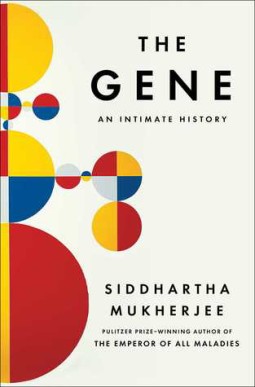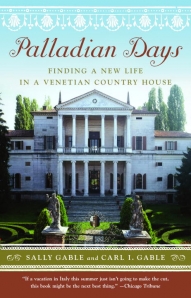This review contains affiliate links, which earn me a small commission when you click and purchase, at no extra cost to you. Thank you for supporting my small business and allowing me to continue providing you a reliable resource for clean book ratings.
Since I read and enjoyed Siddhartha Mukherjee’s The Emperor of All Maladies, a surprisingly readable and not-surprisingly educational book that describes itself as “a biography of cancer,” I snatched up the opportunity to read Mukherjee’s next book, simply titled The Gene, which he says in the Acknowledgments is essentially a “prequel” to that earlier book. The Gene is a biography of the codes that make us who we are. As he says, “If cancer, to twist the description of the monster from Beowulf, is the ‘distorted variant of our normal selves,’ then what generates the undistorted variants of our normal selves? Gene is that story — of the search for normalcy, identity, variation and heredity.”
Mukherjee goes back to very early theories of heredity, of how information about parents is somehow transmitted to and through their children, such as Pythagoras’ idea that semen collected instructions for offspring by “coursing through a man’s body and absorbing mystical vapors from each of the individual parts,” information that was then transferred into the female body and became a fetus “via nourishment from the mother.” And that, of course, was only one of many theories that sought to explain what we take for granted today about genetics.
He discusses Gregor Johann Mendel, the young man who joined a monastic order who was “terrible at the job” of parish priest and unable to pass a scientific exam to be a teacher. So he carefully cultivated a garden and painstakingly bred and studied generations of peas, which every middle-schooler today knows. But his work was largely unknown for several decades.
The book takes readers on the odyssey of piecing together information about the human gene and genome since then, ending with the research and work that is happening now, in the decade after the completion of the sequencing of the human genome. The most recent research was news to me, and I found it fascinating and at times alarming. As Mukherjee posits about what we now know, “What will we do with this information?”
Over the past four decades, groups of scientists and government leaders and agencies have rightly put the brakes on some areas of research, to allow time for us as a society to decide how to proceed with the powerful information we have. What’s possible? What’s ethical? What’s humane? Who gets to decide?
As of the writing of The Gene in 2015, while most countries and scientists had kept to certain parameters in the latest technologies that make “gene editing” and “gene-altering” possible, a lab in China announced that it had tried to “correct a gene responsible for a common blood disorder” using 86 human embryos obtained from an IVF clinic. “Seventy-one survived. Of the fifty-four embryos tested, only four were found to have the corrected gene inserted. More portentously, the system was found to have inaccuracies. … It was an abysmal, slapdash experiment.” While Western attitudes and philosophies still make us look with horror on this type of experimentation, and the results that could come of it, the Chinese have different attitudes, and they will go forward with the work. “The drive to change the genome of a human embryo has turned into an intercontinental arms race. … The first ‘post-genomic’ human might be on his or her way to being born.”
Mukherjee concludes with stating we need a “manifesto for a post-genomic world,” and it’s difficult not to heartily agree with him. While many of us may not be thinking about the gene, we should be. This book acts as an absorbing but educational text and as a call to start thinking about what we see for the future of our very selves.
Rated: Moderate, for two uses of strong language and two instances of mild language.
Click here to purchase your copy of The Gene on Amazon.
*I received an ARC in exchange for my honest review.




